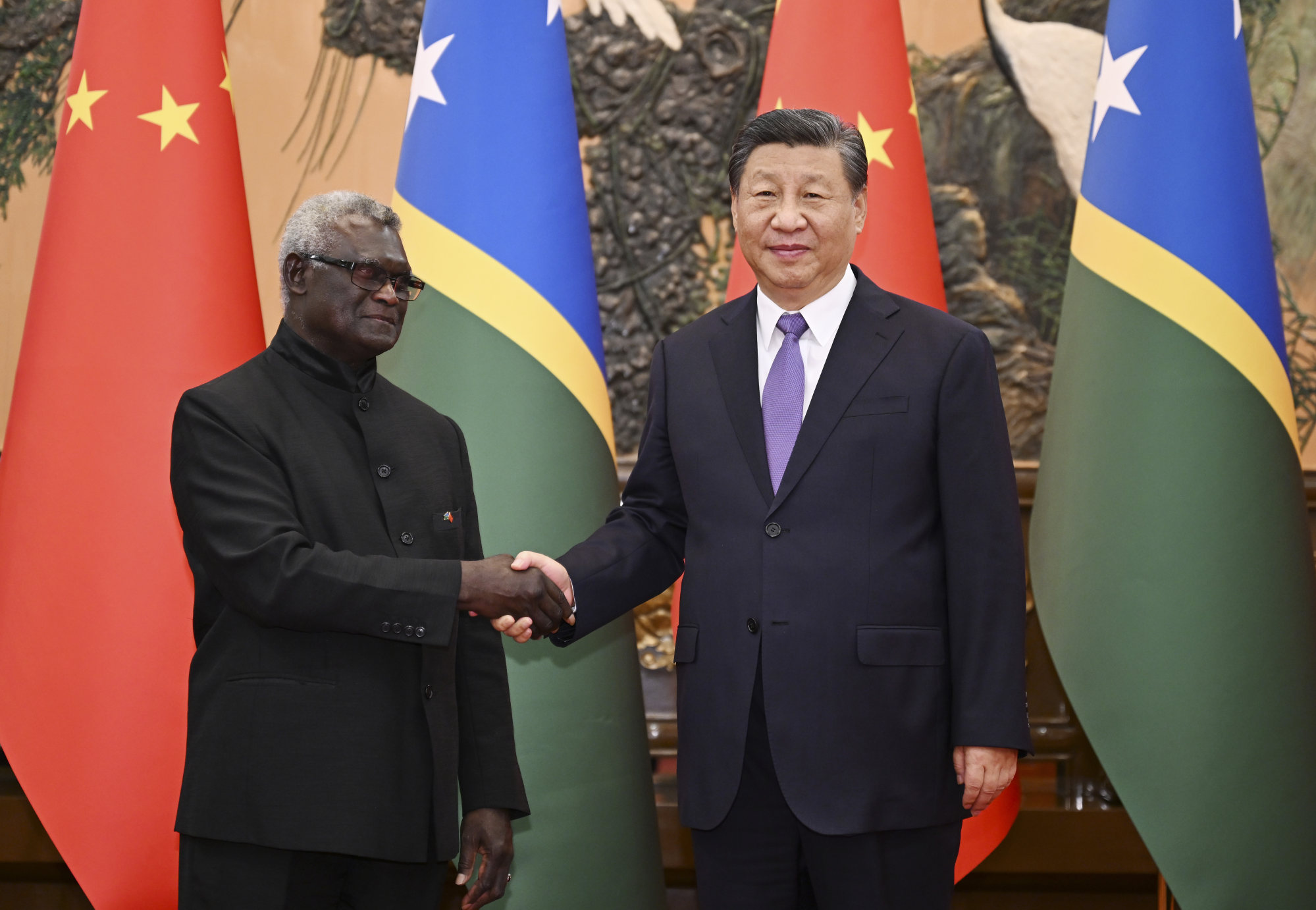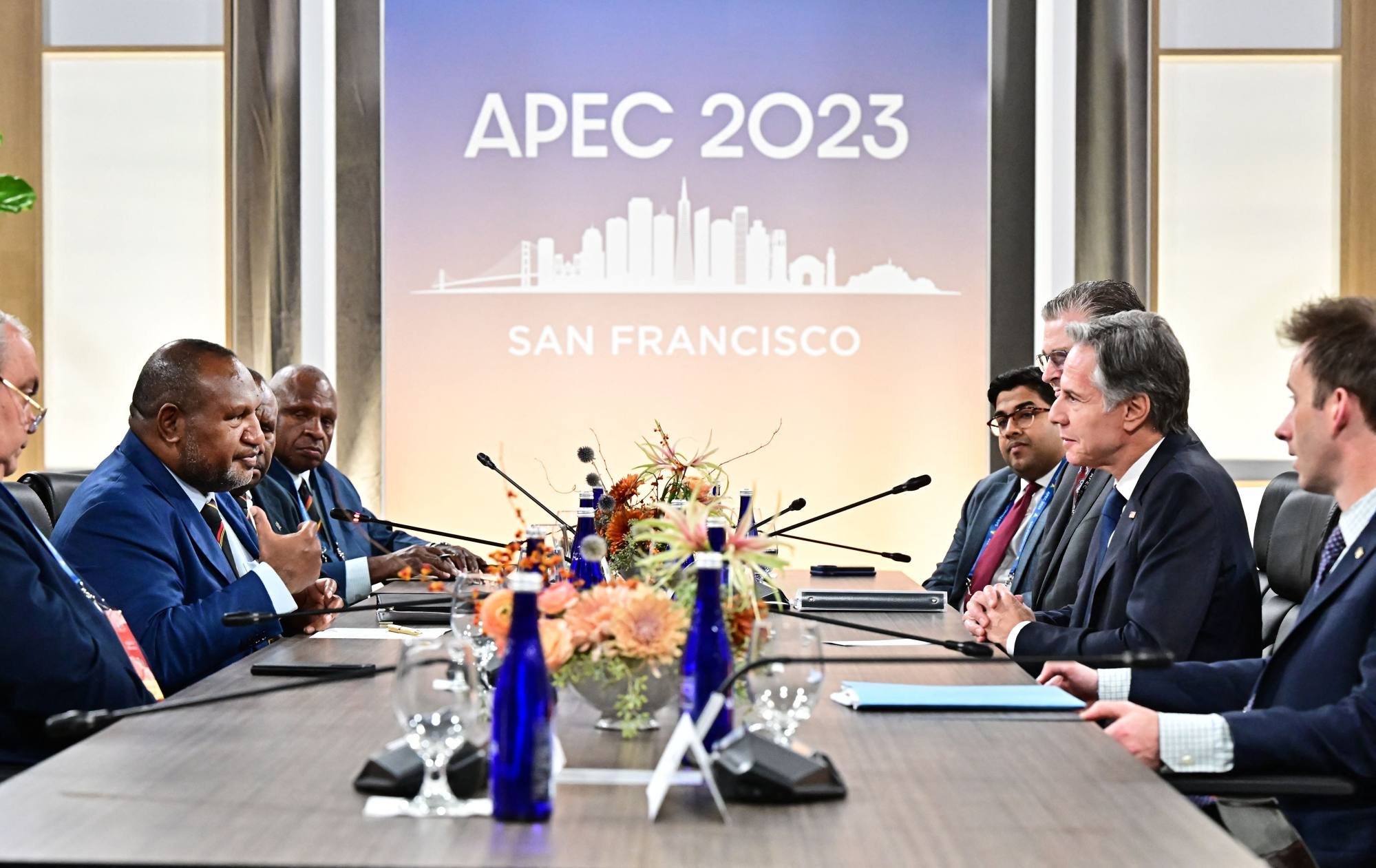US-China’s ‘tense’ Pacific power play to persist after Australia-Papua New Guinea security pact
Tuvalu gets climate win in new Australia pact, but it comes with a ‘trade-off’
Tuvalu gets climate win in new Australia pact, but it comes with a ‘trade-off’
“The long game is still being played out, and although China’s domestic economic problems will affect its economic and diplomatic footprint in the Pacific, China will remain an alternative partner of choice for Pacific Island states,” Kaiku said.
While Australia, as a member of the “Pacific family”, has an upper hand when it comes to security deals, contests for power and influence in other areas including aid and trade would remain “tense and dynamic”, said Meg Keen, director of the Lowy Institute Pacific Islands Program.
“Pacific island countries have been clear they want to have relations with Australia, US and China and will strongly protect their right to be friends to all,” she said.

“Australia is consolidating its position as the security partner of choice, but the Pacific welcomes China as a development and trade partner. China will remain a key player in the region for a long time to come.”
Geopolitics in the region took a turn last year when the Solomon Islands signed its controversial policing pact with China. The move prompted US and Australian diplomats to step up engagements with the Solomon Islands before its Prime Minister Mannasseh Sogavare accused those countries critical of its deal with China of foreign intervention and disrespecting its sovereignty.
Consequently, to relate better with Pacific nations such as PNG, Canberra had framed the language of the treaty with Port Moresby to appeal to their shared principles of democracy and rule of law between both sides, Kaiku said.
Build now, pay later? Debt-ridden Fiji turns to China for port upgrades
Build now, pay later? Debt-ridden Fiji turns to China for port upgrades
“This is a powerful narrative in countering China,” Kaiku said. “China’s policing culture and its questionable illiberal and repressive practices are not viable in security cooperation in weak states such as the Solomon Islands or PNG.”
“This agreement was heavily criticised in PNG and raised questions about PNG’s sovereignty and its long-held ‘friends to all, enemy to none’ foreign policy principle,” said Schleich, who is also an adjunct Senior Fellow at the S. Rajaratnam School of International Studies.
“After this political backlash back home, PNG Prime Minister James Marape needed to clarify the sovereignty issue with Australia, which held up the negotiations and signing of the [subsequent] Australia-PNG agreement.”

While the region continues to focus on the US and its allies in their competition with China, Pacific nations would look to leverage these power shifts to their advantage, Kaiku said.
It is less so about how much which side would prevail but to what extent the needs of the Pacific nations can be met, he added.
“We also must look at how Pacific Island states are adept in maximising their interests in this whole situation. This is not about Australia [and the US] being ‘successful’ [in reducing China’s regional influence],” he said.
He pointed to Deputy Prime Minister of Fiji Biman Prasad, who recently pressed Australia and New Zealand for visa-free arrangements with Pacific nations and for their skilled workers to work in Australia and New Zealand.
“For us in the Pacific, the worst fears are that we will blindly walk into a conflict that we have no control over,” he said.

